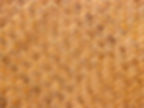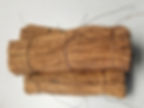
PREMIUM NATURAL FIBRE
NATURAL FIBRE PRODUCT RANGE
We combine traditional knowledge with innovation in the use of natural fibre materials to create sustainable solutions for a range of consumer needs and industrial applications.




BANANA
To date, banana fiber has had a very limited industrial application and was primarily used in the making of ropes, mats, and other composite materials. With increasing environmental awareness and the growing importance of eco-friendly fabrics and textiles, banana fiber has also been recognized for its unique qualities. Its application is increasing in a range of fields including fashion/ apparel and home furnishing.
Manisha Group possesses over 50,000 hectares of banana plantation, located in prime areas of the country to suit different client requirements.
NIYANDA
Known as the “snake plant,” sansevieria zeylanica, Niyanda is a member of the agave family of plants. As one of the best substitutes for sisal fiber, Niyanda has similar desired properties.
Sisal fiber is a fully biodegradable, green composite fabricated with soy protein, resin, modified with gelatin. Sisal fiber modified soy protein resins and composites were characterized for their mechanical and thermal properties. It is a highly renewable resource of energy. Sisal fiber is also exceptionally durable and low-maintenance, experiencing minimal wear and tear.
RATTAN
The most important product of rattan palms is cane: the rattan stem stripped of its leaf sheaths. This stem is solid, strong and uniform, yet is highly flexible. The canes are used either in whole or round form, especially for furniture frames, or split, peeled or cored for matting and basketry.
Used in a range of other applications, the group currently processes over 500 hectares of prime bamboo plantations in the east of the country where ideal conditions for the growth of the crop prevails.
SISAL
From ancient times sisal has been the go-to material for agricultural twine due to its strength, durability, ability to stretch, an affinity for certain dyes and chemicals, and it’s resistance to deterioration in salt water.
The region of Africa has historically been the predominant region of growth for agave sisalina. With the discovery of its potential to grow in the tropical climate conditions of Sri Lanka, the Group is currently in the process of working through the agricultural formalities to produce this crop.
Zero pesticides or chemical fertilizers are used in sisal agriculture. It is a stiff fiber traditionally used in making twine, rope, and also dartboards. It is manufactured from the vascular tissue from the sisal plant (Agave sisalana). Sisal is used in the production of automotive friction parts (e.g. brakes and clutches).

PALMYRAH
Known as Borassus flabellifer, palmyrah iis a native crop to tropical regions of Africa, Asia, and New Guinea. Having a vast array of applications, this crop faces aggressive demand. The Group has invested in over 25,000 hectares of land dedicated towards the production of palmyrah in the northern region of the country where the ideal temperature ranges and soil conditions prevail.
Palmyrah fiber is resistant to both alkali and acids, resistant to water, and resistant to attack by termites and other insects. It is for these reasons that palmyrah fiber is preferred to other vegetable fibers. Fiber is used to make industrial and domestic scrubbing brushes and road sweeping brushes. It is also used in a wide range of applications in the fashion industry.